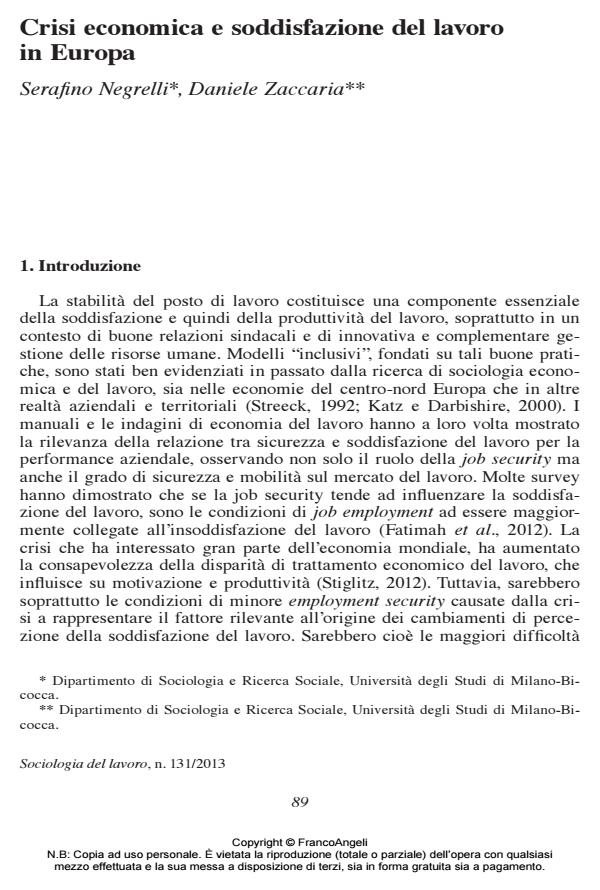Economic crisis and job satisfaction in Europe
Journal title SOCIOLOGIA DEL LAVORO
Author/s Serafino Negrelli, Daniele Zaccaria
Publishing Year 2013 Issue 2013/131
Language Italian Pages 15 P. 89-103 File size 1149 KB
DOI 10.3280/SL2013-131006
DOI is like a bar code for intellectual property: to have more infomation
click here
Below, you can see the article first page
If you want to buy this article in PDF format, you can do it, following the instructions to buy download credits

FrancoAngeli is member of Publishers International Linking Association, Inc (PILA), a not-for-profit association which run the CrossRef service enabling links to and from online scholarly content.
The aim of this work is to understand whether job satisfaction, a concept which consists of several dimensions concerning the world of work and its impact on life, has been affected by the impact of the crisis. The approach followed is that of models of capitalism to capture how the institutions and the mediation they tend to play, are a valid explanatory mechanism also during the crisis. Analysis of EWCS 2005 and 2010 data emphasizes higher levels of satisfaction in countries with inclusive and liberal models than in Mediterranean and former Soviet Europe, both before and during the crisis. In Western Europe there has been a widespread improvement in the levels of satisfaction, especially for the most skilled workers, while increased job instability seems to have less influence in determining dissatisfaction, as if it indicates an adaptation of the workforce to the new economic context.
Keywords: Economic crisis, job satisfaction, models of capitalism, European Working Conditions Survey, professional structure, comparative analysis
- Dies-non: refusal of work in the 21st century Pierpaolo Mudu, in Gender, Place & Culture /2018 pp.1329
DOI: 10.1080/0966369X.2018.1551780
Serafino Negrelli, Daniele Zaccaria, Crisi economica e soddisfazione del lavoro in Europa in "SOCIOLOGIA DEL LAVORO " 131/2013, pp 89-103, DOI: 10.3280/SL2013-131006